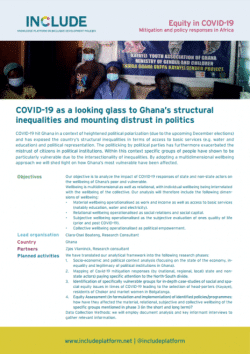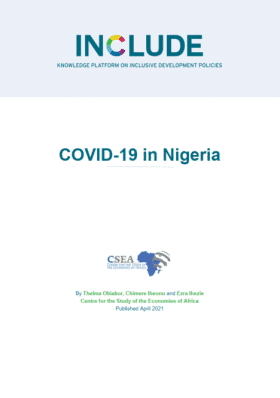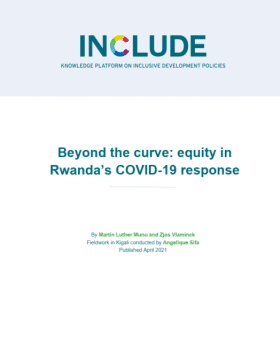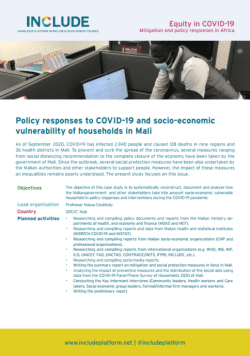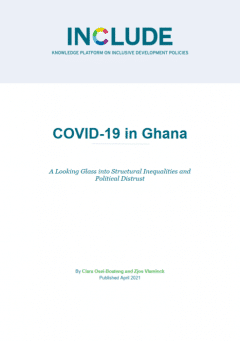
This report systematically reconstructs and analyses the state and non-state responses to COVID-19 in Ghana and their impact on the wellbeing of Ghana’s poor and vulnerable, more specifically Kayayei (head-porters) in Accra, residents of Chorkor in Accra and market women in Bolgatanga. Our findings demonstrate that for these groups of citizens the socio-economic impact of the pandemic has been higher than the impact on health. We also found that vulnerability and resilience to the pandemic is embedded in existing inequalities. In addition, equitable mitigation measures have been undermined by the absence of a national database on household poverty, insufficient information on the urban poor in particular and patron-client distributional pressures. This was heightened by a looming presidential and parliamentary elections. This has resulted into further alienation of the most vulnerable and the increase of political mistrust among those who needed the interventions the most.
